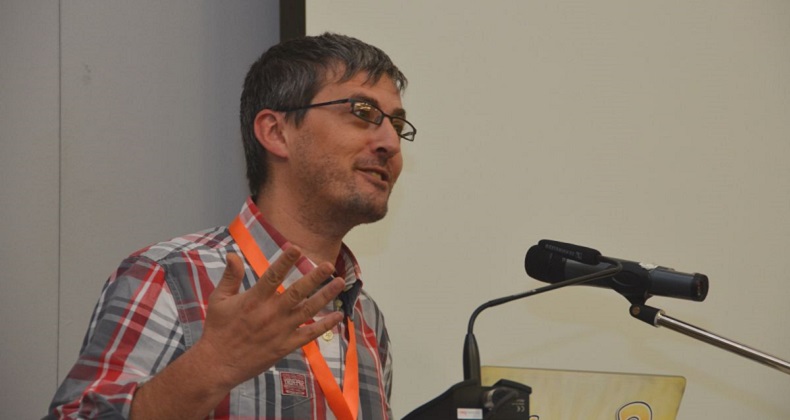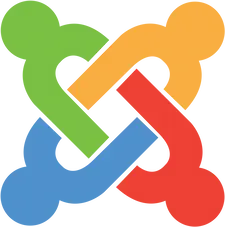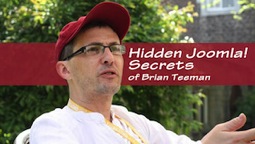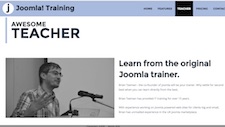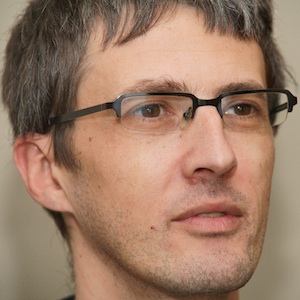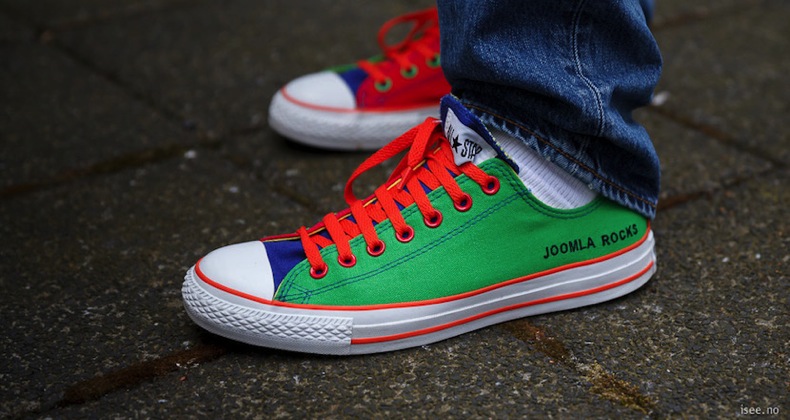I have a confession to make - I am a tech billionaire. I am a tech billionaire as a direct result of my childhood and education as a Jewish person.
Before you start looking for the contact form to approach me for a donation to your cause please indulge me for a few moments. I know this will be hard for some of you but first let me share with you my story.
Then you will understand how I have made billions in technology. And, how I am different to those other tech billionaires you have heard of: Larry Ellison of Oracle, Mark Zuckerberg of Facebook, Google co-founders Sergey Brin and Larry Page and Dell Computer Founder Michael Dell.
My Education
I can trace my journey to becoming a tech billionaire to my childhood education. Two specific beliefs or ideologies were instilled into me - Progressive Judaism and Tikkun Olam. But more of that in a few minutes.
I left school 30 years ago in 1986. I never used a computer at school - they didn't really exist. I did all my homework using a pen and paper. I had to use a book from the library to find things out or even my sister's aged copy of the Children's Encyclopaedia Brittanica - all 25 volumes. There was no internet, no Google, no iPad and definitely no email (which I know for some of you was a blessing).
My First Computer
I was however one of the lucky few that did have a BBC computer - actually I still have it - it's in the loft at my parents house. I copied code from Teletext on the TV and then spent hours typing it into the computer. It rarely worked first time but when it did - oh boy it was exciting to see something I created on my TV screen. I didn't have a mobile phone until I was in my twenties - and that was VERY early. I was the first of my peers to have one and no one understood why I needed it. Today even six year olds have a mobile phone but when I was their age I always had a 2p piece in my pocket so that I would be able to use a payphone.
Being a Jew
So what did Progressive Judaism teach me? Progressive Judaism taught me to be inquisitive. It taught me to study and read the available sources, attempt to understand them and apply them to my life today. Progressive Judaism taught me about equality. It taught me that we are all equal and should have equal opportunities. It also taught me that the world doesn't work that way, we don't all have the same opportunities and that prejudice and superstition still exist. Progressive Judaism taught me that not everything can be explained. Not everything has an answer or a solution. It taught me that to have faith means not having to have a reason or an explanation. Some things just are.
The easy choice is to accept the status quo and the decisions of others. The hard choice is to make up your own mind.
Making an informed personal choice from a position of knowledge is the biggest lesson I learned in my childhood. This is what has shaped my life. This is part of the secret to me becoming a tech billionaire. The other is Tikkun Olam which is the Hebrew for “world repair”.
In simple and personal terms, for me, “tikkun olam” is about having a responsibility to make a difference in my community.
University Dropout
So I studied hard and - well no not really - I am a University drop out - just like those other billionaires: Mark Zuckerberg, Bill Gates, Roman Abramovich and Steve Jobs. University just didn't do it for me. It required an academic rather than a practical approach. The correct answer was always the one in the text book. There was no room for new solutions. There was no opportunity for creativity or for the application of new ideas. I needed something else, University was clearly not for me.
After I dropped out and was looking for my personal path I spent some time working as a youth worker. I was offered a job working for a small computer manufacturer. I was considering training to be a social worker and the world of computers had not even been on my horizon. But I took the job as a temporary measure - nothing ventured, nothing gained.
A Miracle Happened Here
That company was called Ness and the company advertising was either about the Loch Ness monster or Eliott Ness from The Untouchables - a popular movie at the time. I did not realise immediately that Ness was a Hebrew word. Ness is the Hebrew word for miracle and that job offer and my introduction to the world of computers was my miracle.
While I worked at Ness learning all about building and repairing computers I continued to be a youth worker. I was still looking for my way to "repair the world". Eventually I left the world of computing and went to work as a child care support worker. I loved that job but after a while the emotional stress that came with it became too much and I was drawn back into the world of computers.
Going Online
I went to the USA on a vacation and that's when I discovered the online world. It wasn't the internet yet. But what I did observe was that groups of people were coming together as online communities. They shared information and knowledge. They helped each other and more importantly, perhaps as a result of everyone being anonymous behind a telephone line we were all equal. There was no race or gender online. We were all the same.
Open Source
A childhood friend, Charlie Stross now a world renowned author, introduced me to the missing piece in my quest to repair the world. He had a column in the largest computer magazine of the time. It was all about a revolution in computing called Open Source.
In 1941 US President Franklin D. Roosevelt said that everyone in the world ought to enjoy four freedoms: Freedom of speech, Freedom of worship, Freedom from want, Freedom from fear.
Open Source software has its own four freedoms. Freedom to use it, freedom to study it, freedom to share it and the freedom to improve it and share your improvements so that others can benefit as well.
This was both new to me and exciting. Studying the source of the code was almost the same as studying traditional Jewish texts. You look at the source, you debate the meaning and the merits, you come to a viewpoint and you share that with others.
I had found my spiritual home - a combination of my Judaism, my interest in computers and my desire to do more.
Fake News
Fast forward a little to the dawn of the millennium. The media was full of "fake news" that a bug in all computer code (the y2k bug) would bring everything to a halt at midnight Dec 31, 1999. Friends of mine in the tech world were earning large sums of money to sit in computer centres at midnight so they could fix the bugs and prevent the apocalypse the media was predicting. But not me. I had decided to go on an adventure to Africa.
As we approached midnight on New Year’s Eve I was sat under the stars in Ghana reading the local newspaper and listening to the BBC World Service, waiting for Big Ben to strike. I will never forget an article I read in the Accra Times business section that night. It was a statement from the Ghanaian National Bank.
"The y2k bug will not affect Ghana. We have tested both our computers and they are ok!"
Let me repeat that so you can realise the significance. In England we were worried about our personal computers, our laptops and our elevators failing after midnight. Ghana was safe as they had tested "both" the computers.
Online was the Future
Connecting with other people online would help to spread diversity and encourage equality. Yet here was a concrete example that the world was not equal. Back in Leeds I was worried if my computer was fast enough to play the latest game. If I could get a faster internet connection. If I could buy a bigger screen. But here in Africa they didn't even have a computer to improve or to connect to the world wide web.
"The future is already here — it’s just not very evenly distributed.”
William Gibson
Time for Action
I needed to do something. I needed to repair the world and find a way for everyone, wherever they lived, to experience the world I lived in. The internet world. A world where the information to improve yourself is just a keyboard away. A world where the culture was one of sharing and helping. A world where we could all enjoy the same opportunities.
"If I am not for myself, who will be for me? But if I am only for myself, who am I? If not now, when?"
R. Hillel
So now I had found why and where I wanted to help repair the world I just needed to find the how. That didn't come to me for a few more years. In the meantime I had created an internet service provider and I was helping the developers of various Open Source software projects. But I was still seeking my own niche. Or as we say in the software world I was looking to scratch my own itch.
The World Wide Web
The World Wide Web was really taking off and everyone wanted to be online. But very few knew exactly what that meant or how they could go about it. People bought software for hundreds of pounds or paid people thousands just to have a simple page. The opportunity to have an attractive website with unlimited pages, calendars, downloads and more was beyond the average company. It was definitely beyond the budget of a charity, church or synagogue. And that was here in the affluent West. What would it be like in a country in Africa or South Asia where even today the average wage per day is often less than we give our children as pocket money for sweets each week? For them it would be impossible.
To give you an idea of the time for those of you who are too young to remember. This is a time before Facebook, before Twitter, before SnapChat and before you could have the entire internet on a supercomputer in your pocket.
Joomla - the Beginning
Together with some friends from the internet we set about to create software that would power the web. And what a disparate bunch we were. A French Trotskyist, a Muslim Bosnian refugee, a Methodist pastor’s husband from Australia, a few non-religious EU and US citizens and me an English Jew. We had never met each other in real life, we only knew each other from the internet. That was only through typing in a chatroom and exchanging emails - we had never even seen each other face to face. This was a time before skype and free video chats.
We didn’t agree on much but the one thing we did all agree on was that the web should be for everyone. It should not matter if you’re rich or poor. It should not matter if you have a computer education. It should not matter if you do not speak English.
Everyone should be able to create a website that is the equal of every other website on the, by now rapidly growing, World Wide Web.
Becoming a Billionaire
Earlier I mentioned some other tech billionaires - Mark Zuckerberg and Bill Gates. You’ve probably heard how they have, and still are, donating large sums of money to charities across the world. They made a lot of money and now give back because they can, or because they feel they need to repair damage they caused. I didn't - instead of accumulate riches to share afterwards I wanted to create something for everyone.
We made Joomla multilingual. We made Joomla powerful and we tried our best to make Joomla easy to use. We want everyone, anywhere in the world, to be able to use Joomla to build web sites. But perhaps most importantly we made it free. We do not charge a penny, a cent, a rupee or a shekel. Anyone can download it and use it to build their own web site. Now we even provide free training, free support and free hosting.
But we did something more than making it free. We made it extendable and customisable. We made it possible for others to make extra functionality and designs that they also could share, or sell, with the world.
Joomla Today
Today, after almost 12 years, Joomla is used on every continent and in every country in the world. It is used by everyone from private individuals to charities. From small companies to multinational conglomerates. By Presidents and even by the United Nations. It is used to create web sites in over 65 languages. It is used on about 3% of all the web sites in the world. How many web sites is that? I don’t know. I don’t have enough fingers - but it’s a lot.
We taught the world to fish
So how did we became tech billionaires if we have given Joomla away to the world completely free of any cost. We made billions for others when we created the tools for them to earn a living.
“If you give a man a fish he is hungry again in an hour. If you teach him to catch a fish you do him a good turn.” Anne Isabella Thackeray Ritchie
We gave people across the world, no matter their skill level, education or spoken language the tools to feed themselves and their families for a long time ahead. I don’t know how many people but it will be in the tens of thousands.
I have travelled the world teaching people about Joomla. I have met people who thanks to the money they have earned building websites with Joomla are the first person in their family to be able to afford a university education. I have met someone in India who just two years ago was a subsistence farmer and now employed three people building websites with Joomla. I have met people in Sarajevo who thanks to Joomla have been able to rebuild their shattered lives after so long under siege. When South Sudan became the newest country in the world, and one of the poorest - their first website was built with Joomla. The day after the Green Revolution in Libya people started to rebuild their country using Joomla to communicate to the country. When I visited Cambodia in 2015, a country rebuilding itself after years of almost total destruction and a return to the Iron Age under the Khmer Rouge almost every website that I saw when planning my trip was built with Joomla.
We didn’t build a tool to become billionaires. We built a completely free tool, available in almost every language, extendable and as powerful as all the alternatives and in many cases more powerful. We built a tool that helped people to improve their own lives and those of their families. We built a tool that created a billion dollar global industry.
Together we built a tool that helped to repair our world.
We taught the world to fish.
I finally did my small part to help repair the world - Tikkun Olam.
This is an edited version of a longer speech given elsewhere. Thanks to all those who pre-read it and encouraged me to publish this version online.

